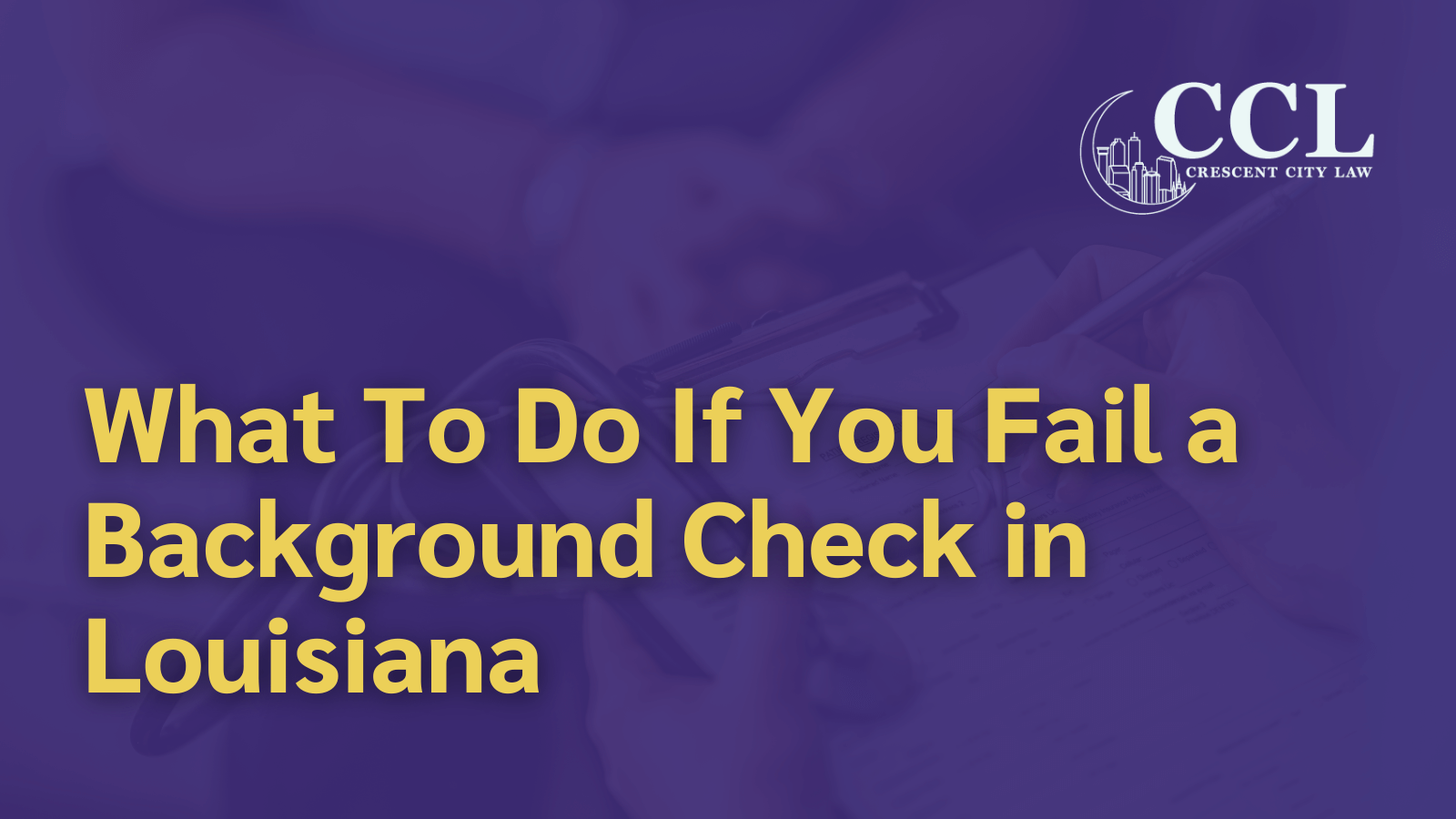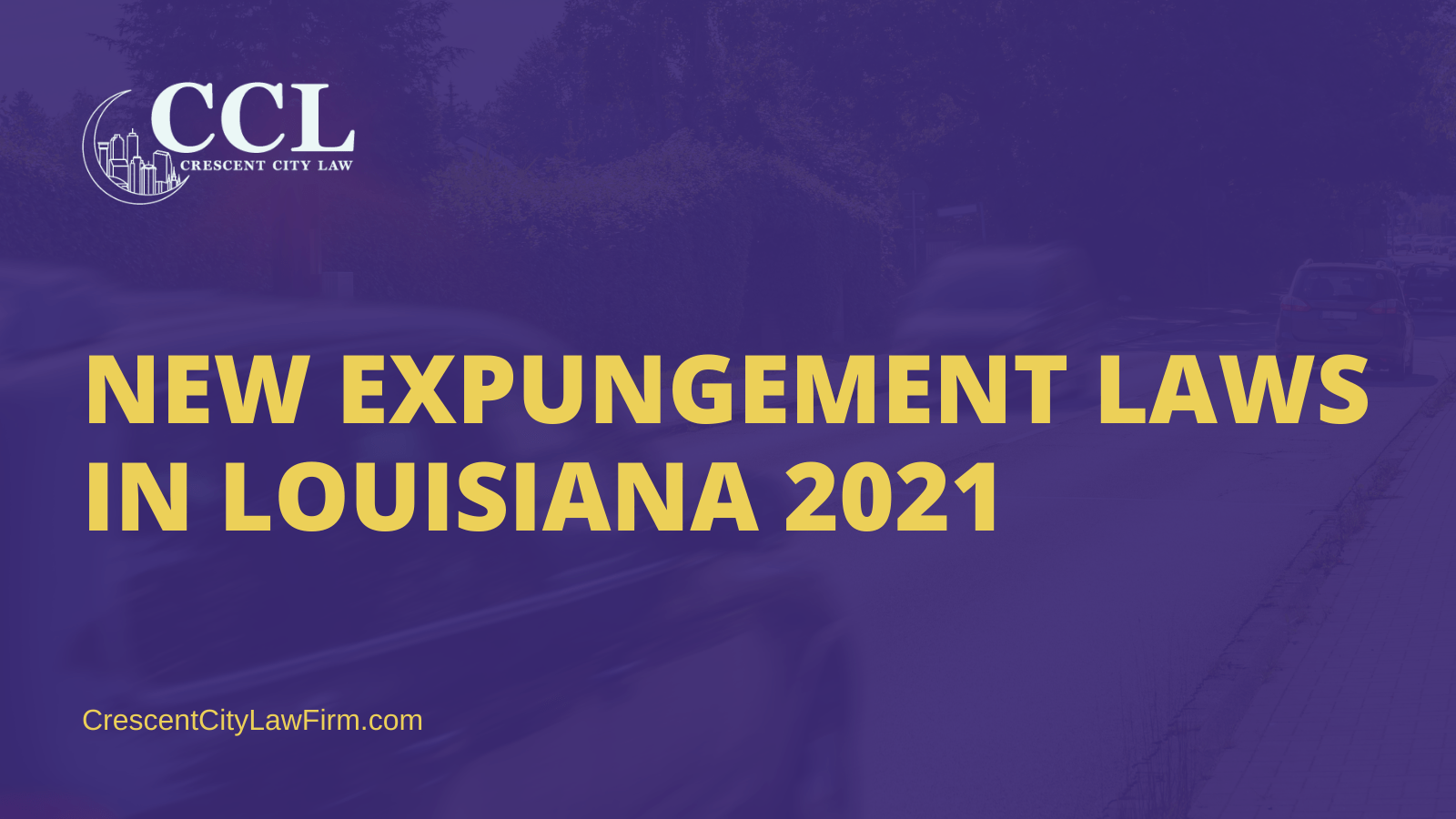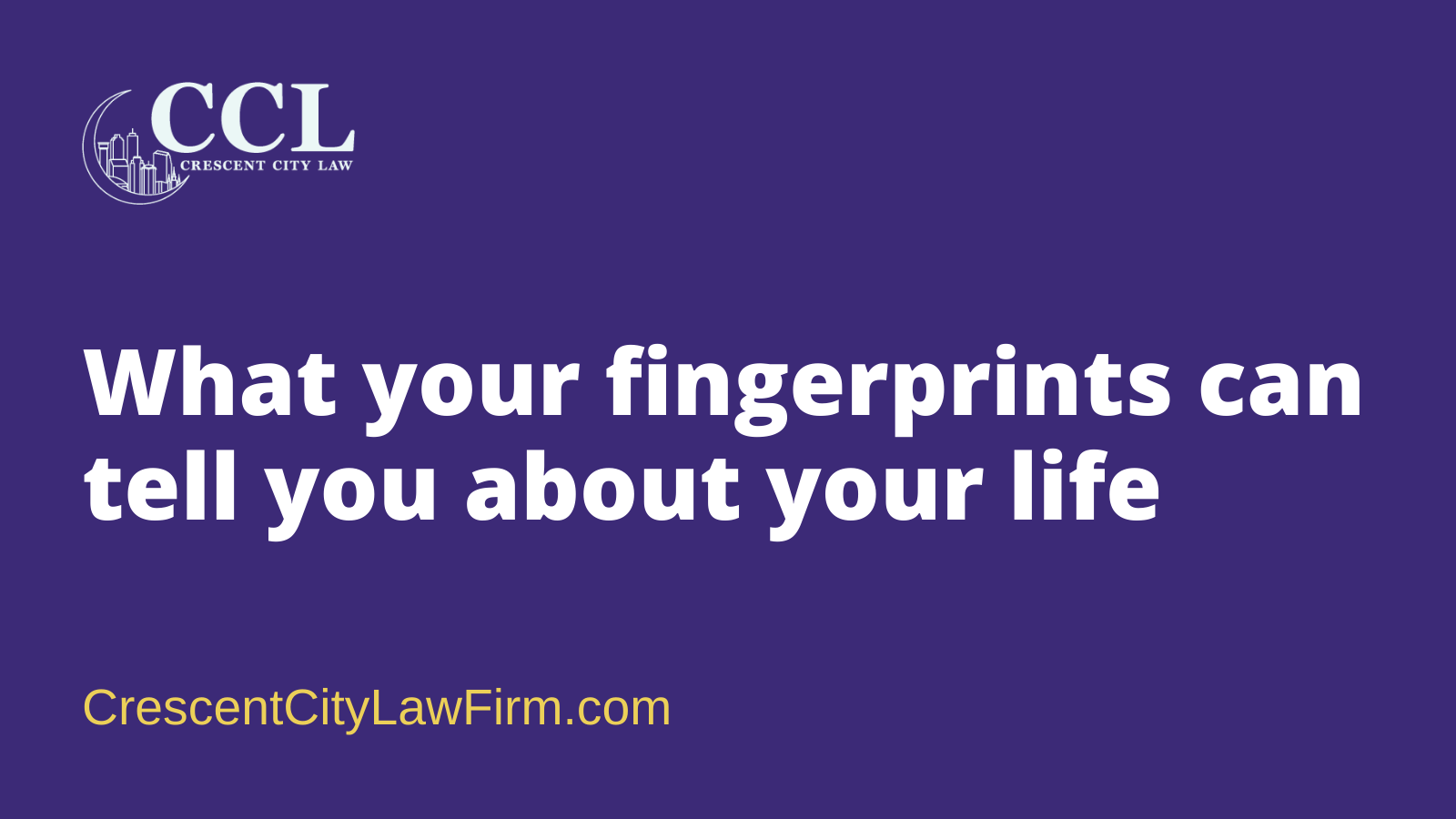If you’re looking to get an old conviction removed, you may be interested in the timeline of expungement.
And even if you’ve already decided you’d like to get your record expunged, it can be difficult to know how the process works and how long it will take.
At Crescent City Law, we’re proud to help our clients with the expungement process, so we’ve provided a quick rundown of what you can expect for your expungement.
Keep in mind, however, that all cases are different, and there are no specific guarantees in regards to your case.
Gathering all the necessary information
The first step we need to take in order to work on getting your expungement is organizing all the information we’ll need. This includes:
- Gathering Information to Write your Expungement from the Clerk’s Office: Usually this means requests an “Expungement Packet” from the court which includes the minutes of your case, final disposition of your case, commitment, bill of information (charging document) or screening action form (if your case was not prosecuted).
- Requesting Certificates from the District Attorney’s Office: You will need to request a certificate of eligibility from the District Attorney’s Office. You may be eligible to have your court costs waived. If you’re eligible to have those fees waived, we’ll help you request these waivers from the district attorney.
Checking your Background: – You need to request your background check from the State of Louisiana. Typically, this process takes about 3-6 weeks. However, if you’re willing and able to make the drive to Baton Rouge, this step of the process can be finished all within the day you drive up to get your fingerprints taken. If you need help obtaining a background check, we’re here for you.
One or Two Motions?
Once we have all the paperwork ready, it’ll take about a week or so for our office at CCL to organize everything and get it sent off to the court. Most expungements are actually two motions: (1) A Motion to Set Aside your Plea of Guilty and Dismiss your Conviction, and (2) a Motion for Expungement.
Motion to Set Aside your Plea of Guilty and Dismiss your Conviction
Many times, someone seeking an expungement pled guilty to their charge in the past. If that’s the case, your plea was an agreement to complete the conditions of your probation, pay your fines, and stay out of trouble in exchange for the State agreeing to allow you to file to have your conviction set aside and dismissed if you decided to file this motion under Article 893 or Article 893 of the Louisiana Code of Criminal Procedure. .
Once we’ve filed the motion, the court will set a hearing for approximately 30 days later. When the court grants the motion to set aside and dismiss your conviction, we’ll be able to file the Motion for Expungement.
Motion for Expungement
You can apply for an Expungement of your arrest and conviction in four scenarios:
-
- You can apply for an expungement after your plea of guilty was set aside and your conviction dismissed as described above.
- You can apply for expungement after a period of either 5 years (misdemeanors) or 10 years (felonies) of good behavior if you did not plead under article 893/894.
- You can immediately apply for an expungement when you receive a first time offender pardon even if you did not plead guilty pursuant to article 893 or article 894.
- You can always apply for an expungement when your case did not result in a conviction.
Once the Motion for Expungement is filed,the application will be sent to the Louisiana State Police, the District Attorney’s office, the Parish Sheriff’s Office, Clerk of Court’s Records Department, and any other law enforcement agency who assisted with your arrest or conviction.
These agencies will have 60 days from the day they receive the Motion from the Court to agree or object to your expungement application. Then, three things could happen:
- If they all agree, your expungement will be granted automatically!
- If anyone objects, the court will set a date to hear your case and decide whether you’re eligible.
- If no one responds, the court typically sets the date for a hearing to make sure everyone has a chance to be heard. If still no agency responds, the court will grant your expungement automatically.
What happens if your expungement has been granted?
Once your expungement has been granted, the court will ensure the law enforcement offices (Louisiana State Police, District Attorney’s office, Parish Sheriff’s Office, etc.) remove your record from all public databases. Generally, the court order must be followed within 60 days of judgment.
After that, your expungement will be complete, which could help your education and employment aspirations and help you move forward with your life.
As of March 2021, however, you should maybe expect some procedural delays before that happens. The Lens reported on a backlog in expungement cases in the Criminal Court Clerk’s Office that is preventing people who are otherwise eligible for expungement from moving through the official process.
Some people have been forced to wait as long as six months as paperwork isn’t filed, departments don’t communicate with each other, and their hearings are rescheduled as a result.
And even if your expungement is granted, that may not be the end of it. One person told the lens that, although his record was supposedly expunged in 2018, his conviction still appeared in the Criminal District Court’s online database 2 years later. It took him several months to reach someone in the Clerk’s Office and have the record removed.
There are many talented attorneys who are working to have these issues addressed. But in the meantime, procedural delays shouldn’t prevent you from moving forward with your expungement as soon as possible.
Contact Crescent City Law today
While it might seem daunting, the benefits of an expungement are often well worth the complicated process. And if you decide to apply for an expungement, our team at Crescent City Law will be with you every step of the way. Find out if you’re eligible for expungement here, or contact our team today.






